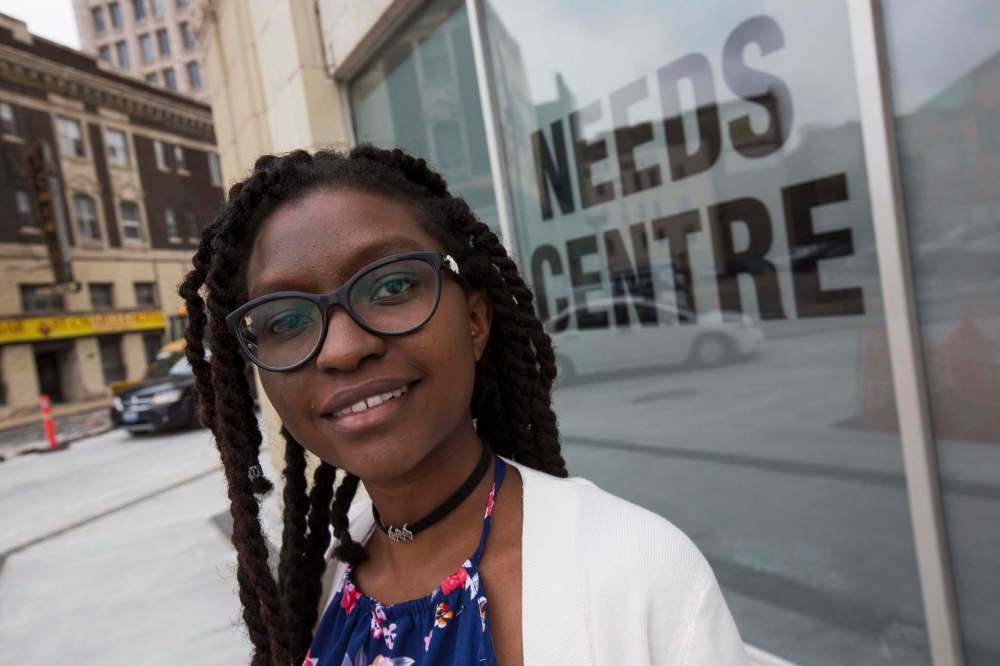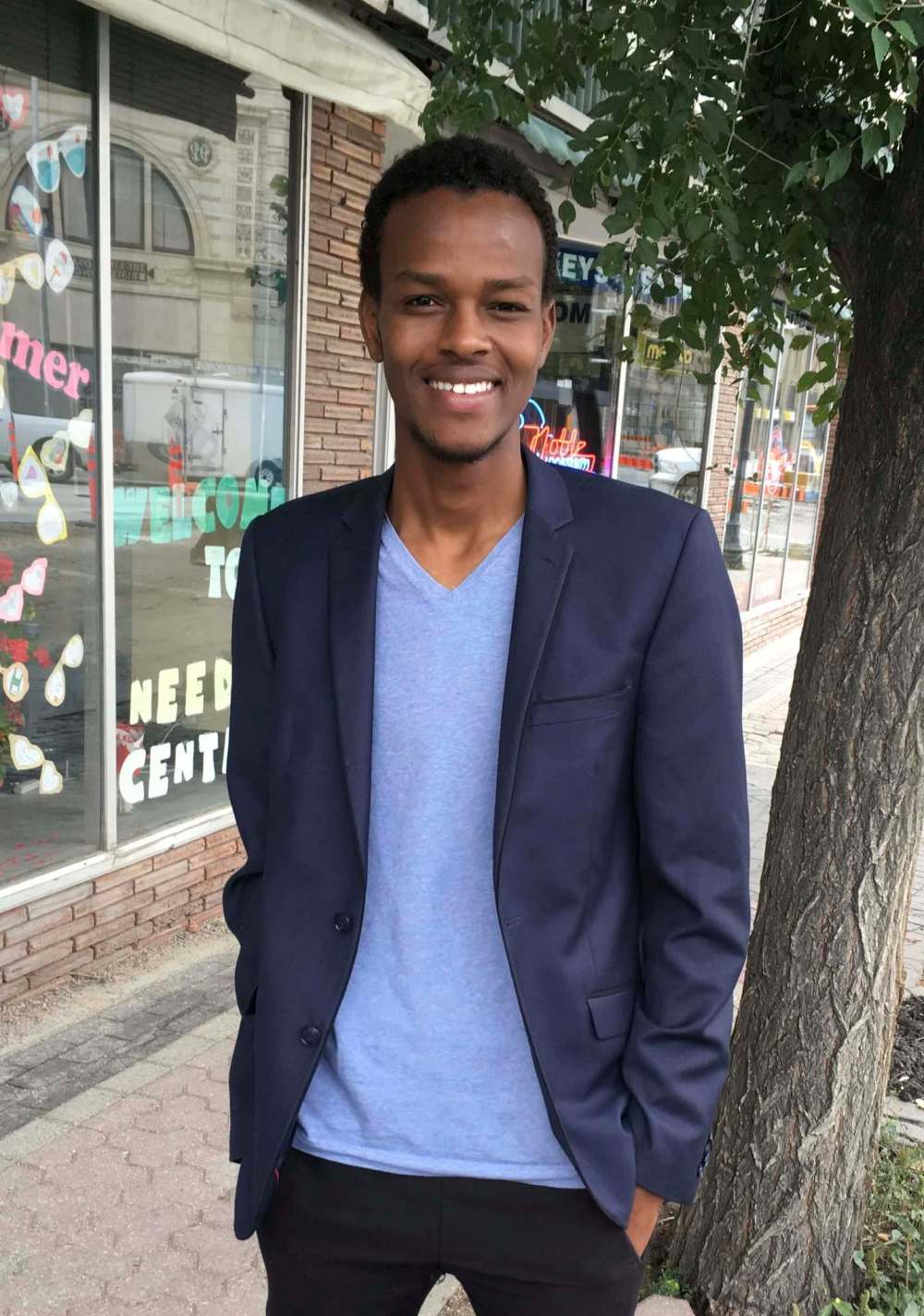Agency fills immigrant youths’ NEEDS with skills to make smart choices
Read this article for free:
or
Already have an account? Log in here »
To continue reading, please subscribe:
Monthly Digital Subscription
$0 for the first 4 weeks*
- Enjoy unlimited reading on winnipegfreepress.com
- Read the E-Edition, our digital replica newspaper
- Access News Break, our award-winning app
- Play interactive puzzles
*No charge for 4 weeks then price increases to the regular rate of $19.00 plus GST every four weeks. Offer available to new and qualified returning subscribers only. Cancel any time.
Monthly Digital Subscription
$4.75/week*
- Enjoy unlimited reading on winnipegfreepress.com
- Read the E-Edition, our digital replica newspaper
- Access News Break, our award-winning app
- Play interactive puzzles
*Billed as $19 plus GST every four weeks. Cancel any time.
To continue reading, please subscribe:
Add Free Press access to your Brandon Sun subscription for only an additional
$1 for the first 4 weeks*
*Your next subscription payment will increase by $1.00 and you will be charged $16.99 plus GST for four weeks. After four weeks, your payment will increase to $23.99 plus GST every four weeks.
Read unlimited articles for free today:
or
Already have an account? Log in here »
Hey there, time traveller!
This article was published 28/08/2018 (2660 days ago), so information in it may no longer be current.
When Aden Mohamed arrived in Canada five years ago, the 17-year-old refugee didn’t speak English and could have been an easy target for gang recruiters and drug dealers in his inner-city neighbourhood.
“We never crossed paths,” said Mohamed, who credits a strict dad, an encouraging coach and guidance and training from Newcomers Employment and Education Development Services Inc. for staying focused on school, soccer and work.
“When I came here it wasn’t easy,” said the young man who had to learn a new alphabet, language and culture. “I knew my weakness is language.”

To improve, he watched English movies such as Rocky at home and went to NEEDS Inc. at 251 Notre Dame Ave.
“They had a huge impact on my life,” he said, referring to NEEDS staff in the heart of downtown, where violent crime has risen dramatically and more than 2,000 newcomer youths have been groomed to have, and make, better choices.
“They helped me with language and going to high school,” said Mohamed, who attended the after-school program there to get additional help with homework and learn coping skills. Staff made sure he knew how to avoid trouble, he said.
“When I came here, I never heard about gangs before. They said, ‘This is what they do, what they wear.’ They showed me the basic tools I need for living in Winnipeg. They helped me with chemistry. And finding a job.”
On Saturdays, he took part in NEEDS employment program that prepared him for his first job and helped him land a part-time position at Winners.
“The people I’m working with are great,” said the nattily-attired young man who plans to keep working while going to school. The majority of his pay goes to help support his large family here and in a refugee camp in Kenya, he said.
He’s a recipient of the Arlington Street Foundation Scholarship that supports the post-secondary education of Gordon Bell High School students who are distinguished by their resiliency and commitment to succeed. “The fund is inspired by the spirit, pride, desire and ability to overcome adversity embodied by the families who immigrated to the downtown core of Winnipeg, Manitoba during the 1950s,” the foundation’s website says.
Now 22, he graduated from high school, won the scholarship and is starting university next week with plans to be a teacher or a doctor.
What is it?
NEEDS has 73 employment graduates this year from the First Jobs program that provides opportunities for those youth that are having difficulty with their career path to find sustainable and meaningful employment and the Stream One program. It gives youth who’ve been assessed by their teachers and determined that they are not yet ready to access post secondary, the opportunity to gain employable skills that will help them to transition into the job force upon graduation from high school.
NEEDS has 73 employment graduates this year from the First Jobs program that provides opportunities for those youth that are having difficulty with their career path to find sustainable and meaningful employment and the Stream One program. It gives youth who’ve been assessed by their teachers and determined that they are not yet ready to access post secondary, the opportunity to gain employable skills that will help them to transition into the job force upon graduation from high school.
It has 35 high school graduates this year — the highest number of graduates ever had for high school and the highest number of graduates attending post secondary in the fall. Nearly a third of the high school grads received entrance scholarships and school distinction awards.
Its Youth Program provides educational support to develop English language skills and to see them through to completion of high school. It’s safe space where they can access structured recreational activity and psychosocial support.
Source: NEEDS Inc.
On Tuesday, Mohamed was honoured at a NEEDS ceremony with 34 others who graduated from high school.
Katriel Gitonga, 17, came to Canada with her parents and two siblings two years ago from Nairobi, Kenya.
“It was crazy,” she said, explaining that her parents moved to Canada for its stability and opportunity, but being uprooted in high school to another continent and climate wasn’t easy.
“Meeting new friends as an immigrant in Grade 11 was tough,” she said. “Kids already have their friendships since third grade and have made their little cliques.”
Her aunt directed her to the programs at NEEDS and now Gitonga and has a close-knit social circle.
“I have friends here,” she said, adding she also has a part-time job that she got through NEEDS employment training. She works at Superstore on Sargent Avenue filling “click and collect” orders.
“It’s harder than it looks,” said Gitonga, who starts at the University of Manitoba’s faculty of engineering next week. She’s fascinated by systems and how they work and appreciates NEEDS’ role in equipping newcomer kids with solid decision-making skills.
“This program is great for laying a foundation and getting youth on the right track,” she said.

Investing in youths pays huge dividends, said Margaret von Lau, executive director of NEEDS Inc., which is funded by the provincial and federal governments with help from the United Way and Winnipeg Foundation.
“We need to look at what we want Manitoba to look like in the future,” said von Lau. The programs at NEEDS are structured educational and employment programs designed and delivered by trained staff with specific outcomes in mind, she said.
“Youth like structure,” she said, adding there have been very few times when they’ve “lost” one of their kids to drugs or gangs.
The non-profit agency has served as estimated 2,000 newcomer youths over the last 15 years.
“Employment is a huge aspect,” she said. “It’s giving youth extra money to contribute to their parents. It’s giving them dignity and opportunity; it’s really giving them options.
“If you didn’t have these services, imagine what Manitoba would look like.”
It would look a lot worse than it does right now, as Winnipeg struggles with the scourge of methamphetamine and a spike in violent crime. On Tuesday, Mayor Brian Bowman said dealing with the root causes is key.
“There is a greater need for increased focus and resources for mental health and addictions in our community,” he said at a press conference. “That includes many stakeholders, including the province of Manitoba.”
With more done to address root causes of crime and addiction, police would then be better able to address crime, the mayor said.
“Police can focus on other core policing activities other than responding to things that — if the root causes were dealt with — those calls wouldn’t be made in the first place,” he said.
“You can’t arrest your way out of addictions.”
carol.sanders@freepress.mb.ca
— With files from Erik Pindera

Our newsroom depends on a growing audience of readers to power our journalism. If you are not a paid reader, please consider becoming a subscriber.
Our newsroom depends on its audience of readers to power our journalism. Thank you for your support.








